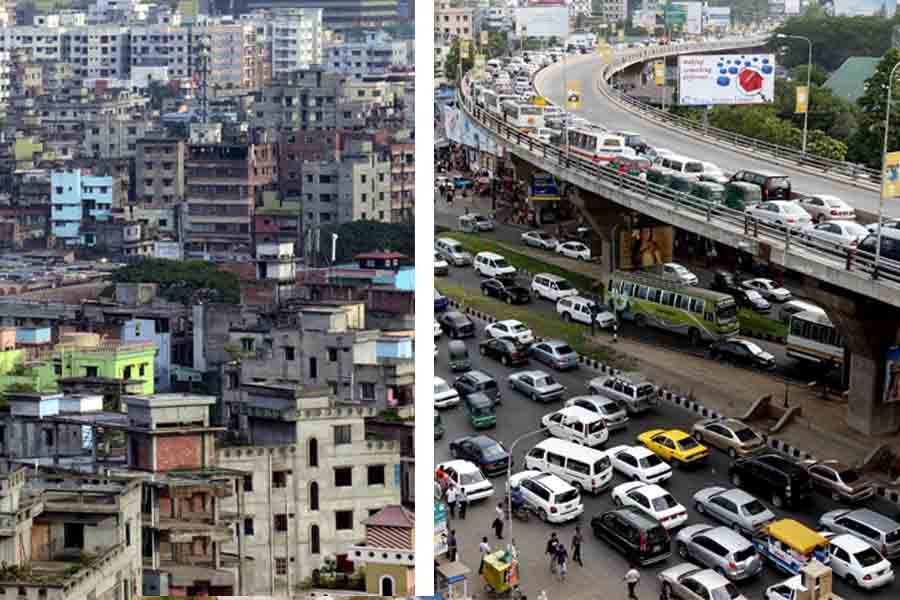
Published :
Updated :

After having ranked one of the most stressful cities in the world (the margin of difference between them being in percentage points), Dhaka now figures globally, according to The Economist Intelligence Unit (EIU),'among the least safe cities.'
The Economist's Safe Cities Index 2017 is based apparently on rather loosely-knit indicators numbering 49 but they are focused on four vital parameters: Digital security, health security, infrastructure security and personal security. The large number of measures were used by the EIU to ensure both intensive and extensive comparative evaluations of the 60 cities' security status in terms of digital, health ,infrastructure and personal safety .
Dhaka, Karachi, Manila, Ho Chi Minh City, Jakarta, Cairo, and Tehran are among the 10 least safe cities in the index. Dhaka ranked 58th overall. If you unpack the roll ,the picture gets a bit mixed. Jakarta which came last in regard to 'frequency and severity of terrorist attacks' in 2015 is 57th this year. According to the study, Jakarta has been pulled from the bottom by the addition of other cities like Karachi, Yangon and Dhaka.
On digital security, Dhaka is reportedly in the same bracket as the other low-income cities. On the one hand, they lack technology skills in the digital domain; and on the other, they are handicapped in tackling challenges like infectious diseases and poverty. Thus caught between competing concerns, cyber security doesn't receive the priority it deserves.
In respect of health security Dhaka's position is second from the bottom. Along with low-income cities like Mumbai, Yangon, Karachi, Dhaka is 'struggling to deliver adequate health services.'
On infrastructure security ,Dhaka is placed at the bottom ten in this category in the company of other lower-income cities like Mumbai , Delhi, Manila,Yangon and Karachi .
On a slightly heartening note in the personal security category, Dhaka is ranked 43rd with Karachi taking the last place among the bottom ten.
We endorse the conclusion drawn by Chris Clague, the editor of the 'Safe Cities Index:Security in a Rapidly Urbanising World-"While cities generate economic activity the security challenges they face expand and intensify as their populations grow".
To my mind, the moral of the rankings is two-fold. One is we get to know where do we stand vis-à-vis other countries on some vital parameters on a year-to- year basis. There one may have a question pertaining to authenticity ,objectivity or conversely, raising an issue of bias or slant. Since the methodology is universally applied it is supposed to be transparent and auditable. Although a think tank like EIU is self-mandated and widely connected, it has a stake in maintaining credibility not just because of its brand name but also because it is in competition with other research repositories.
The second moral lies in the purposes the research or the study sets about achieving. The rankings are like a guide-book for economic, investment, tourism -related decision-making. Of course, we need to have our own set of analyses on issues and trends to exchange notes with people and bodies having differing perceptions and deductive knowledge.
In order that we may have lively discourse in the public domain, I am tempted to provide an appetizer which is this: Without any false sense of Déjà vu at being bracketed with some mega cities in terms of miseries, we must strive to set our anomalies right.


 For all latest news, follow The Financial Express Google News channel.
For all latest news, follow The Financial Express Google News channel.